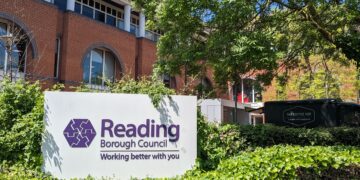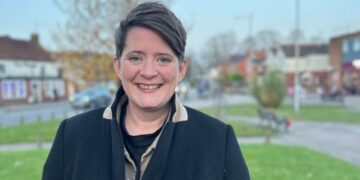A SMARTPHONE is a lifeline not a luxury for people living in poverty.
That’s the concern of Claire Oughton, from Citizens Advice Wokingham, who has seen soaring phone bills due to the need for hand-held tech.
Ms Oughton, who has been with the organisation for 11 years, said society has become dependent on smartphones in order to function, which is increasingly causing problems for clients.
“Lots of people don’t have landlines, or access to a computer, laptop or tablet,” she said. “Their phone is their lifeline — they use it for everything.”
With many parents paying for their children’s phone as well, this increases the cost further.
“People are caught between the devil and the deep blue sea,” she said.
“They want to know their children are safe, but they have to pay money for that.”
Ms Oughton said managing contracts is a challenge, especially when providers call offering a flashy upgrade at a higher price.
“We sometimes have to say it’s just not appropriate to issue contracts to some of our more vulnerable clients,” she said. “I question the ethics of offering another two-year contract for more money.”
Home broadband contracts can be expensive and challenging to secure if someone has poor credit, or is living in temporary accommodation.
Instead, mobile phone data can be one of the few ways to get online — which is essential when applying for or managing Universal Credit payments.
But even paying for the tech can be a challenge, Ms Oughton said.
“Some clients have such low levels of credit, they can’t call their gas or electricity company,” she said. “We can do three-way calls to cover this.”
Instead of using their own minutes, Citizens Advice steps in. With its own freephone number, the organisation knows the importance of making phone numbers accessible, Ms Oughton explained.
“We made a big push to move to freephone,” she said. “We didn’t want to disadvantage people calling us.”
Over the last year, Citizens Advice Wokingham has recorded 28 cases of mobile phone debt.
These referrals are closely coupled with a need for charity support, and help managing council tax, fuel debts and access to the foodbank.
When it comes to managing the phone payments, Ms Oughton said they are classified as a
non-priority payment.
Something she questions.
“When we make a debt payment plan, available funds have to go to priority debts first — gas, electricity and council tax,” she said.
These are ranked as a priority, due to the sanctions that can be made due to non-payment, from being disconnected, to sent to court.
But Ms Oughton is concerned that by categorising phone payments differently, this could still leave residents disconnected.
“If mobile phones were also considered a priority, clients could continue to make their payments,” she said. “We want to avoid the client not having a phone.”
Cllr Shirley Boyt, co-founder of the Woodley Lunch Bunch, said she noticed access to technology was a bigger problem during lockdown.
“There is a similar problem with a lack of tech for home learning,” she said. “You might have three or four kids, and only one computer — or no computer.”
Cllr Boyt said some parents copied their children’s homework sheets by hand, because they did not have access to a printer and ink.
“It concerns me,” she said.
For more information, or help and support with mobile phone debts, contact Citizens Advice Wokingham for free, by calling: 0808 278 7958
























